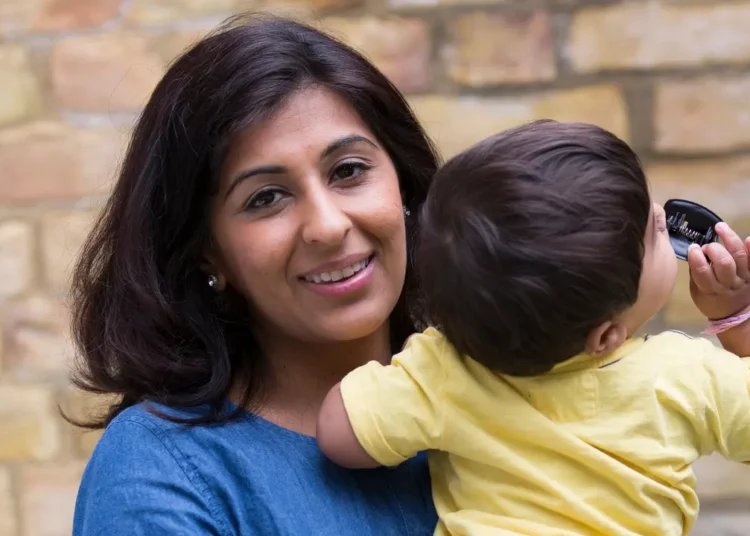The Significance of Hair in Islamic Culture
In Islamic culture, hair holds a significant spiritual and cultural meaning. It is believed to be a symbol of beauty and strength, representing the power and vitality that comes from God. As such, Muslims are encouraged to take care of their hair as a way of showing gratitude for the blessings bestowed upon them by God.
Hair is also seen as a means of protection, with some Muslim women covering their hair with hijab or headscarves as a sign of modesty and piety. This practice is based on the teachings of the Quran, which instructs both men and women to dress modestly and guard their chastity.
Additionally, hair plays an important role in Islamic rituals such as Hajj (pilgrimage to Mecca) where pilgrims shave their heads as a form of purification and humility. The act represents shedding one’s ego and submitting oneself entirely to God’s will.
Some key beliefs about hair in Islam include:
- Hair is a gift from Allah
- Caring for one’s hair is an act of worship
- Modesty includes covering one’s hair
- Shaving one’s head can be an act of purification
The Spiritual Meaning Behind Cutting Hair in Islam
Cutting hair has various spiritual meanings in Islam depending on the context in which it occurs. For example, cutting one’s hair during Hajj represents the shedding of one’s ego and submission to Allah. In other contexts, cutting someone’s hair can be seen as an act of blessing or purification.
The Prophet Muhammad himself set an example for Muslims when it comes to cutting one’s hair. He often cut his own hair or had it cut by others as part of his religious practices. The act of cutting hair was seen as a way of purifying oneself and seeking forgiveness from Allah.
Some spiritual meanings behind cutting hair in Islam include:
- Purification and cleansing
- Submission to Allah
- Seeking forgiveness and atonement
- Blessing or giving thanks for a new beginning or change
Who Typically Cuts Someone’s Hair in an Islamic Context?
In an Islamic context, the gender of the person who cuts one’s hair is significant. For men, it is recommended that they have their hair cut by another man, while women should have their hair cut by another woman. This is due to the belief that men and women should avoid physical contact with members of the opposite sex who are not their spouse or family member.
However, there are exceptions to this rule. For example, if a woman needs her hair cut urgently and there are no female barbers available, she may have her hair cut by a male barber provided there is no physical contact between them.
In some cases, individuals may choose to have their hair cut by someone they trust or respect such as a family member or religious leader. This adds an additional spiritual weight to the act of having one’s hair cut which can be seen as a form of blessing or purification.
Some key beliefs about who typically cuts someone’s hair in Islam include:
- Men should have their hair cut by other men
- Women should have their hair cut by other women
- Families members or religious leaders may also be trusted to cut one’s hair
- No physical contact should occur between members of opposite sexes who are not spouses or family members.
Cutting Hair as a Form of Blessing or Purification in Islam
In Islam, cutting hair is often seen as a form of blessing or purification. It is believed that by cutting one’s hair, an individual can rid themselves of negative energy and impurities. This practice is often associated with the Hajj pilgrimage, where pilgrims shave their heads as a symbol of their devotion to God.
The Spiritual Significance of Cutting Hair During Hajj
During the Hajj pilgrimage, pilgrims are required to perform a series of rituals that symbolize their submission to God. One of these rituals involves shaving the head or trimming the hair. This act is seen as a way to purify oneself and remove any negative energy or impurities that may have accumulated over time.
The Symbolism Behind Shaving One’s Head During Hajj
- Symbolizes humility and submission to God
- Represents shedding one’s old self and starting anew
- A reminder that material possessions do not define one’s worth in the eyes of God
- A way to connect with other pilgrims who are also performing this ritual
Other Instances Where Cutting Hair is Seen as a Form of Blessing or Purification
Outside of the Hajj pilgrimage, there are other instances where cutting hair is seen as a form of blessing or purification in Islam. For example, it is common for parents to shave their newborn baby’s head as a way to bless them and protect them from harm. Additionally, some Muslims choose to cut their hair during Ramadan as a way to purify themselves before Eid al-Fitr, which marks the end of the holy month.
The Symbolism Behind Shaving a Newborn Baby’s Head
- Symbolizes protection from harm and evil spirits
- A way to bless the child and welcome them into the world
- Represents shedding any negative energy or impurities that may have been passed down from previous generations
The Symbolism Behind Cutting Hair During Ramadan
- Represents shedding any negative energy or impurities before Eid al-Fitr, which marks the end of the holy month
- A way to purify oneself before celebrating with family and friends
- Symbolizes renewal and growth as one continues on their spiritual journey
Rituals and Prayers Associated with Having One’s Hair Cut in Islam
In Islam, cutting one’s hair holds a special spiritual significance. It is believed that the act of cutting hair can bring about positive changes in one’s life and symbolize a fresh start. Therefore, it is common for Muslims to recite certain prayers or supplications before and after having their hair cut. One such prayer is the du’a (supplication) of the Prophet Muhammad:
Prayer Before Cutting Hair
- “Bismillah” (In the name of Allah)
- “Allahumma anta hasanta khalqi fa hassin khuluqi” (O Allah, You have beautified my outward appearance, so beautify my character as well.)
Prayer After Cutting Hair
- “Alhamdulillah” (Praise be to Allah)
- “Allahumma aj’alni min al-mutatahhirin wa aj’al sha’ri min sha’ari al-mutatahhirin” (O Allah, make me among those who purify themselves and make my hair among the hair of those who purify themselves.)
These prayers are meant to express gratitude towards Allah for his blessings and seek His guidance in leading a pure and righteous life.
Cutting Hair as a Symbol of Personal Transformation and Growth in Islam
In Islamic tradition, cutting one’s hair is often seen as a symbol of personal transformation and growth. It represents shedding old habits or behaviors that no longer serve us and embracing new beginnings. This symbolism is particularly evident during the Hajj pilgrimage to Mecca, where pilgrims shave their heads completely as a sign of their devotion to Allah and their willingness to let go of their past sins.
Similarly, when Muslims cut their hair outside of the Hajj pilgrimage, it is often done with the intention of making a positive change in their lives. This could be anything from starting a new job or embarking on a new journey to seeking forgiveness for past mistakes or overcoming personal challenges.
The Significance of Hair in Islam
Hair is considered an important part of one’s physical appearance and is often associated with beauty and strength. In Islamic tradition, it is believed that hair should be kept clean and well-groomed as a sign of respect for oneself and others. However, excessive preoccupation with one’s physical appearance or vanity is discouraged in Islam, as it distracts from more important spiritual pursuits.
The Gender of the Person Cutting Your Hair and Its Spiritual Significance in Islam
In Islam, there are certain guidelines regarding who can cut one’s hair based on gender. It is generally preferred for men to have their hair cut by other men, while women should have their hair cut by other women. This preference stems from the belief that it is more appropriate for people of the same gender to have close physical contact during grooming activities.
However, some scholars argue that this preference should not be taken too strictly and that it is permissible for men and women to have their hair cut by members of the opposite sex if there is no alternative available or if it does not lead to any inappropriate behavior.
The Importance of Modesty in Islamic Grooming Practices
Islamic grooming practices emphasize modesty and cleanliness. It is encouraged for Muslims to dress modestly and keep themselves well-groomed as a sign of respect for themselves and others. This includes keeping one’s hair clean and well-maintained, regardless of gender.
Meaningful Times or Occasions for Having One’s Hair Cut in an Islamic Context
In Islamic tradition, there are certain times or occasions when having one’s hair cut holds special spiritual significance. These include:
Birth of a Child
It is common for Muslims to shave the head of a newborn baby as a symbol of purification and welcoming them into the world. This practice is known as “aqiqah” and is often accompanied by charitable donations and feasting with family and friends.
Eid al-Fitr
Eid al-Fitr marks the end of Ramadan, the month of fasting. It is customary for Muslims to have their hair cut or trimmed before Eid as a sign of celebration and renewal.
Hajj Pilgrimage
As mentioned earlier, shaving one’s head completely during the Hajj pilgrimage is considered a sacred act of devotion to Allah and a symbol of letting go of past sins.
The Connection Between Cutting One’s Hair and Surrendering to God’s Will in Islam
In Islam, cutting one’s hair can be seen as an act of surrendering to God’s will. This is because it represents letting go of our attachment to our physical appearance and recognizing that true beauty lies within our character and actions.
Furthermore, cutting one’s hair can also be seen as an act of humility before Allah. By acknowledging that we are not in control of every aspect of our lives, we show our willingness to submit to His divine plan for us.
The Importance of Surrendering to God’s Will in Islam
Surrendering to God’s will is an important concept in Islamic spirituality. It is believed that by letting go of our ego and desires, we can become closer to Allah and achieve greater spiritual fulfillment. This requires a constant effort to align our actions with His commands and seek His guidance in all aspects of our lives.
Seeking Forgiveness or Atonement Through Cutting One’s Hair in Islam
In some cases, cutting one’s hair can be seen as a way to seek forgiveness or atonement for past mistakes or sins. This is particularly evident during the Hajj pilgrimage, where pilgrims shave their heads completely as a sign of repentance and purification.
Similarly, some Muslims may choose to cut their hair after committing a sin or making a mistake as a way to symbolize their willingness to make amends and start anew.
The Importance of Repentance and Atonement in Islam
Repentance and atonement are important concepts in Islamic spirituality. It is believed that by acknowledging our mistakes and seeking forgiveness from Allah, we can purify our souls and become better versions of ourselves. This requires sincere remorse for our actions, a commitment to making things right, and a willingness to change our behavior going forward.
Different Interpretations of the Spiritual Meaning Behind Cutting Someone’s Hair Across Islamic Sects and Schools of Thought
As with many aspects of Islamic spirituality, there are different interpretations regarding the spiritual meaning behind cutting someone’s hair across different sects and schools of thought. Some scholars emphasize the symbolic nature of cutting hair as an act of transformation or surrendering to God’s will, while others focus more on the practical benefits of keeping one’s hair clean and well-groomed.
Regardless of these differences, however, the act of cutting hair remains an important part of Islamic grooming practices that reflects the values of modesty, cleanliness, and spiritual growth.
Differences Between Men and Women Regarding the Act of Having Their Hair Cut in an Islamic Context
As mentioned earlier, there are certain guidelines regarding who can cut one’s hair based on gender in Islamic tradition. However, there are also some differences between men and women regarding the act of having their hair cut.
For example, it is generally preferred for men to keep their hair short or trimmed, while women are encouraged to keep their hair long and well-maintained as a sign of femininity. However, this preference should not be taken too strictly and both men and women are expected to keep their hair clean and well-groomed.
The Importance of Gender Roles in Islamic Grooming Practices
Gender roles play an important role in Islamic grooming practices as they reflect broader cultural norms regarding masculinity and femininity. However, these roles should not be seen as rigid or inflexible, but rather as guidelines that allow for individual expression within a larger community context.
Stories and Teachings from Islamic History or Scripture Related to Cutting Someone’s Hair Spiritually
There are several stories and teachings from Islamic history or scripture related to cutting someone’s hair spiritually. One such story is that of Prophet Muhammad cutting his own hair after completing the Hajj pilgrimage:
The Story of Prophet Muhammad Cutting His Own Hair
After completing the Hajj pilgrimage, Prophet Muhammad shaved his own head completely with a razor as a sign of purification and devotion to Allah. This act was witnessed by his companions who followed suit by shaving their own heads in emulation of his example.
This story serves as a reminder of the importance of humility before Allah and the willingness to let go of our attachment to our physical appearance in order to achieve spiritual growth.
The Additional Spiritual Weight of Having One’s Hair Cut by a Family Member or Religious Leader in Islam
In Islamic tradition, having one’s hair cut by a family member or religious leader can hold additional spiritual weight. This is because these individuals are seen as sources of guidance and wisdom who can offer blessings and supplications during the grooming process.
For example, it is common for parents to shave the head of their newborn baby as a symbol of purification and welcome into the world. This act is often accompanied by prayers and supplications for the child’s well-being and success in life.
The Importance of Community Support in Islamic Spirituality
Community support plays an important role in Islamic spirituality as it provides a sense of belonging and connection to others who share similar values and beliefs. Having one’s hair cut by a family member or religious leader is just one example of how this support can manifest itself in everyday life.
Types of Flowers
Roses
Roses are one of the most popular flowers in the world. They come in a variety of colors, including red, pink, yellow, white, and even black. Roses have been used for centuries to symbolize love and passion. They are often given as gifts on special occasions such as Valentine’s Day or anniversaries.
There are many different types of roses, each with its own unique characteristics. Hybrid tea roses are the most common type of rose and are known for their large blooms and long stems. Floribunda roses produce clusters of smaller blooms and are great for adding color to gardens. Climbing roses can grow up to 20 feet tall and are perfect for covering walls or trellises.
Tips for Growing Roses
- Plant roses in an area that receives at least six hours of sunlight per day.
- Make sure the soil is well-draining and rich in nutrients.
- Water your roses regularly, but avoid getting water on the leaves as this can cause diseases.
- Fertilize your roses once a month during the growing season.
Tulips
Tulips are another popular flower that comes in a wide range of colors including red, pink, yellow, orange, and purple. They were originally cultivated in Turkey but became popular throughout Europe during the 17th century. Tulips symbolize perfect love and are often associated with springtime.
There are three main types of tulips: early-flowering tulips, mid-season tulips, and late-flowering tulips. Early-flowering tulips bloom from March to April while late-flowering tulips bloom from May to June. Mid-season tulips bloom in between these two periods.
Tips for Growing Tulips
- Plant tulip bulbs in the fall, about 6 to 8 weeks before the first frost.
- Choose a location with well-draining soil and full sun exposure.
- Water your tulips regularly but avoid overwatering as this can cause bulb rot.
- Fertilize your tulips once a year in the fall using a slow-release fertilizer.
In Islam, the act of someone cutting your hair holds spiritual significance and is believed to symbolize the shedding of negative energy and the beginning of a new chapter in one’s life.






